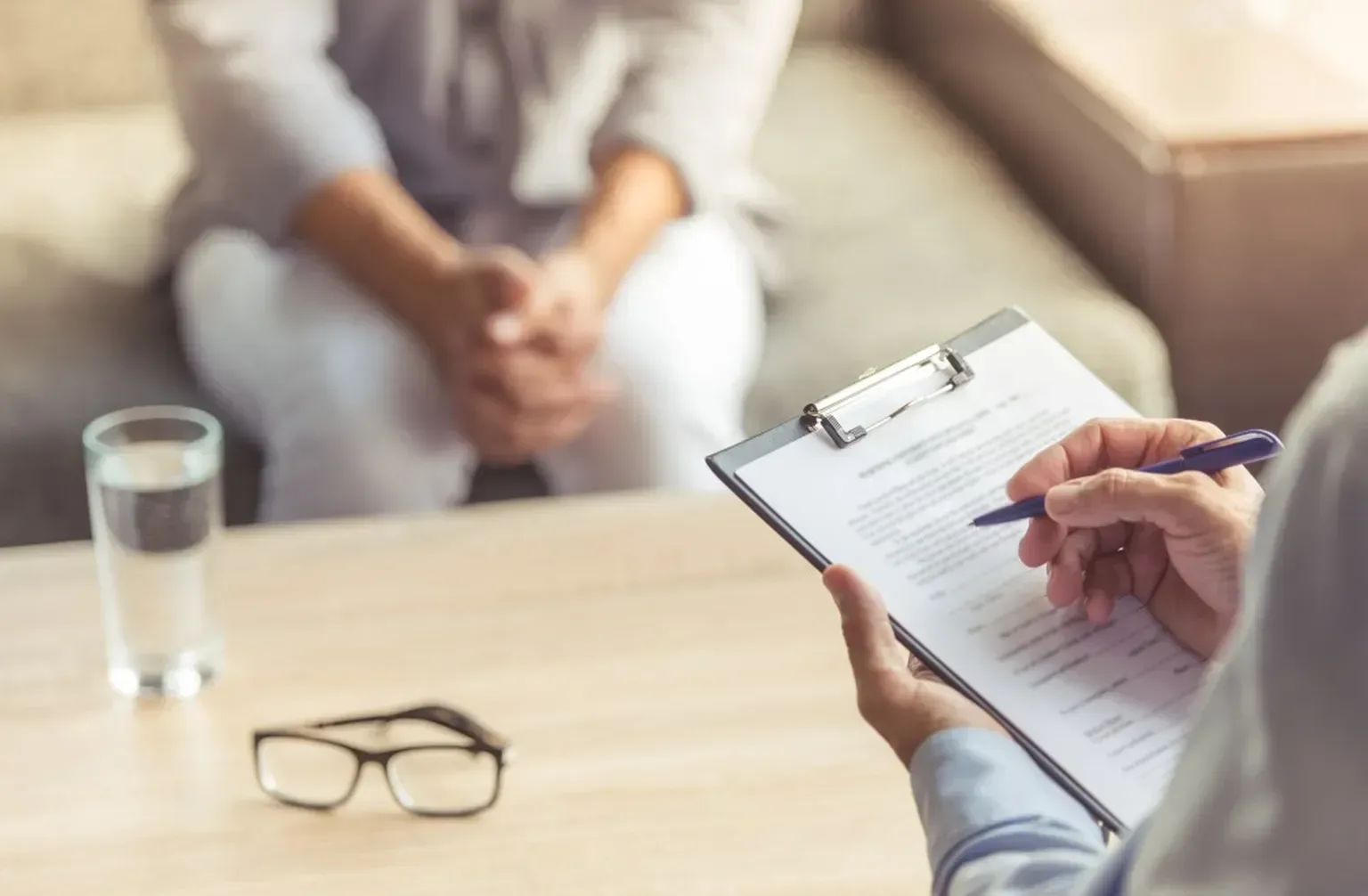Introducing The Rappore Report

As therapy providers, we want to know what you’re thinking. So it’s only right that we share what we’re thinking with you.
A billion years ago a bunch of cells cobbled themselves together into a little cluster, forming a microscopically small organism; over the course of the next 400 million years or so those cells recombined and re-organized themselves, growing a bunch of teensy tiny little hairs, little suction cups for getting around, and a specialized group of cells that could suck up nutrients from the algae it subsisted on. 400 million years, and all we got was a lousy, bristly, scum-sucking little pod of slime. That’s how long it took to go from an amoeba to a multi-celled organism. That’s how long it takes for evolution to do its thing.
Meanwhile a meteor comes storming out of the sky and vaporizes every dinosaur in sight. Changes forever the course of nature. Forces the evolutionary powers to improvise, to come up with something new.
This is how things go. There’s the natural course of things, and then there are cataclysmic, course-shifting events that in an instant — in an apocalyptic flash — change the game entirely. This is how change happens: incrementally, at first— very, very slowly — and then all at once.
At Rappore, we think there have been two distinct events in recent memory that have had this kind of shape-shifting effect on our collective consciousness. First there was the advent of the internet, and all that came with it— a world-changing flood of media so overwhelming it’s impossible at times to distinguish between friend and foe, who and what we should trust and what we shouldn’t. Then on top of it we’ve had to endure the Covid pandemic, which has fundamentally changed the way we work and the way we socialize. For some of us, it’ll be quite some time before we can meet a friend for a beer without a collection of N-95s in our back pocket.
Rappore was conceptualized with these radical changes in mind. It was designed to help younger people — people who grew up online, and whose psychological profiles are influenced by their experiences on social media. (Though that being said, our therapists are also fully capable of helping people in older demographics.)
But just because we have our eye on modern technologies — and the modern problems that they introduced — that doesn’t mean we’ve thrown out the baby with the bathwater. Because while the pressures that have shaped the way we live might be dramatic, even seismic, the development of the science behind therapy more closely tracks with the slow and steady progress of evolution. We are not trying to change the way therapy works, but the way it’s delivered, making it easy and affordable to get the best treatment possible. So we’ve taken what works in a traditional psychotherapeutic environment and digitized it. We’re proud to say that the relationships that develop between our patients and our providers are as intimate and curative as their IRLs analogues. We’re even prouder to say that our patients feel the exact same way.
We don’t hide behind the fact that we’re an online service, or use it as an excuse — a way to rationalize the fact that we offer something less than first-class care. We believe that technology can be harnessed to provide the same quality of care than you’d get offline. We refuse to make a trade-off between accessibility and affordability, efficiency and excellence. And instead of fixating on growth and profit and scalability, we’re single-mindedly focused on the best possible outcomes for our patients.
That’s why Rappore has started small — and intends to remain that way. Our founders have worked at places like Columbia and Harvard, and have leaned on the networks they developed over their long, stellar careers to find the best therapists out there. Yet despite that fact, we still carefully vet each and every provider on our platform, to ensure they can live up to our standards. We also make sure to carefully control their caseloads so they can give their patient the attention they need.
Because no matter where it occurs — online or off, in a Zoom meeting room or a doctor’s office — at the heart of a healing therapeutic experience is the connection between the patient and the provider. The Rappore they build together.
If you’re interested in building a Rappore with us, get started here, with our Mental Health Fingerprint survey. Or to learn more about us, click here.